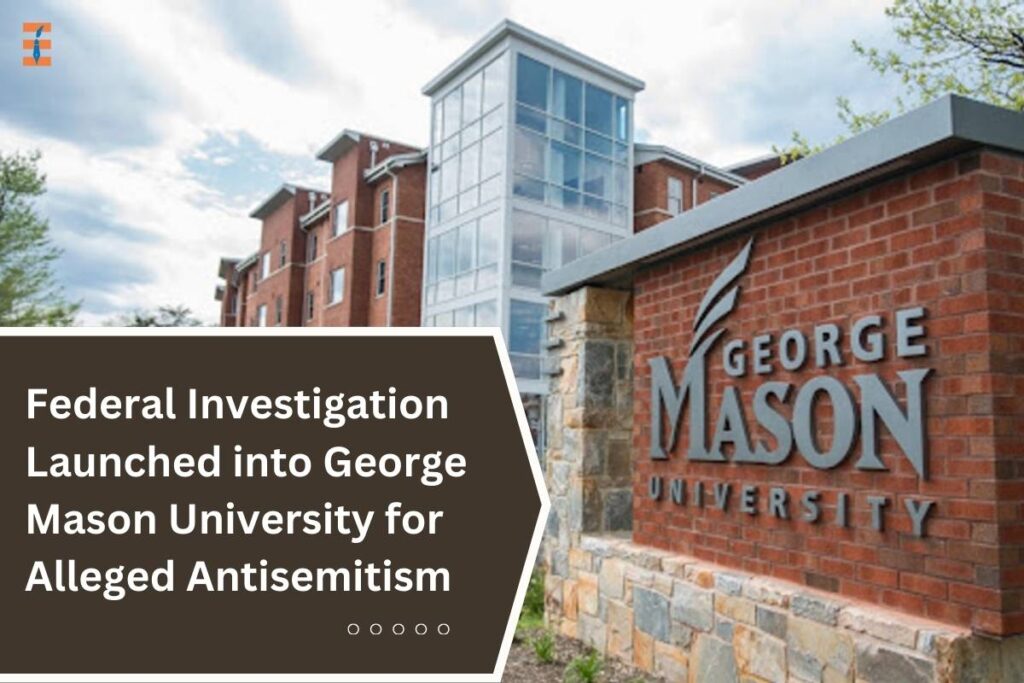Source – New York Daily News
The Biden administration has initiated an investigation into George Mason University, marking another academic institution under federal scrutiny for alleged antisemitism. This follows a series of anti-Israel protests on campus in response to the conflict between Israel and Hamas that erupted on October 7. The U.S. Department of Education’s Office for Civil Rights is also investigating other schools, including Harvard University and Stanford University, for similar reasons.
George Mason University Responds to Allegations:
George Mason University responded to the accusations, emphasizing its commitment to inclusivity and free speech. A university spokesperson stated that they maintain a safe and supportive environment, respecting the principles of the First Amendment. The university expressed confidence that the ongoing review by the Department of Education will affirm their adherence to both the letter and spirit of the law.
The investigation into George Mason University was prompted by an incident in October when a video surfaced on social media showing a student tearing down fliers depicting hostages taken captive by Hamas. The university responded by condemning the act, stating that property destruction and doxing are not constitutionally protected speech. Despite legal advice suggesting the conduct was not criminal, the university asserted its commitment to addressing the violation according to its student code of conduct.
Wider Issue of Campus Antisemitism:
George Mason University is not the sole institution facing criticism for antisemitism. Stanford University drew attention when a non-faculty instructor singled out Jewish students, making them stand against a wall, drawing parallels to Israeli-Palestinian conflicts. Harvard University also faced scrutiny as over 30 student groups signed a letter condemning Israel, accusing it of being an “apartheid regime.” The university’s president, Claudine Gay, resigned amid allegations of plagiarism and raised concerns about the handling of antisemitism during a congressional hearing.
The fallout extends beyond investigations, as the law firm Edelson PC announced its decision not to interview students on Harvard’s campus during the 2024 Spring Interview Program. Additionally, the firm opted out of participating in Harvard’s on-campus interviewing event in August. This move underscores the broader implications of allegations of antisemitism on university campuses, with both federal investigations and the reactions of external entities influencing the academic landscape.
Rising Concerns and Broader Implications:
The allegations of antisemitism on university campuses have heightened concerns about the broader implications for academic institutions. The investigations into George Mason University, Harvard, and Stanford reflect the challenging landscape universities navigate in addressing conflicts related to international events. The clashes between Israel and Hamas, and subsequent protests, have exposed deep-seated tensions that extend beyond the geopolitical arena.
As academic institutions strive to maintain a balance between fostering diverse perspectives and ensuring a safe and inclusive environment, they grapple with challenges related to freedom of speech and expression. The incidents at various universities underscore the delicate nature of these discussions and the potential impact on both internal campus dynamics and external relationships with entities like law firms.
The decision by Edelson PC to abstain from campus interviews at Harvard raises questions about how external organizations perceive and respond to allegations of antisemitism within educational institutions. It emphasizes the interconnectedness of academic reputations, institutional responses, and external entities’ decisions, creating a complex web of consequences for universities facing such allegations.
In the broader context, these incidents prompt a reflection on the evolving role of universities in navigating contentious global issues and the responsibilities they bear in addressing discrimination and bias on their campuses. The outcomes of federal investigations and the reactions of external stakeholders may further shape the discourse around antisemitism in academia, influencing policies, and setting precedents for future incidents.










